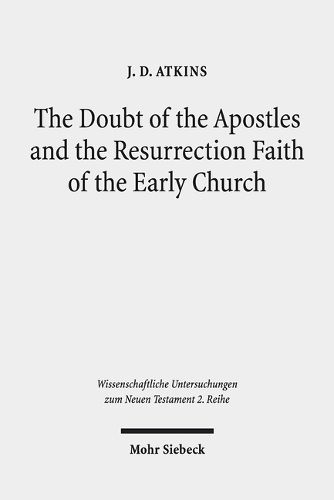Readings Newsletter
Become a Readings Member to make your shopping experience even easier.
Sign in or sign up for free!
You’re not far away from qualifying for FREE standard shipping within Australia
You’ve qualified for FREE standard shipping within Australia
The cart is loading…






In this work, J. D. Atkins employs a combination of reception-history analysis and redaction criticism to challenge modern theories that Luke 24 and John 20 are apologetic responses to incipient docetism. He subjects second-century parallels used to support these theories to the same redaction-critical scrutiny as the Gospels and finds that the editorial and apologetic concerns of the evangelists differ fundamentally from those of antidocetic writers: neither Luke nor John aims to prove the physicality of the resurrection. Both instead draw attention to the fulfilment of prophecy. The author also argues that the apostles’ doubt was not an apologetic device and that the bodily demonstrations of touching and eating predate docetism. Early docetists appeal to the Gospels as apostolic testimony but insist on a non-literal hermeneutic in which Christ performs physical actions in appearance only.
$9.00 standard shipping within Australia
FREE standard shipping within Australia for orders over $100.00
Express & International shipping calculated at checkout
In this work, J. D. Atkins employs a combination of reception-history analysis and redaction criticism to challenge modern theories that Luke 24 and John 20 are apologetic responses to incipient docetism. He subjects second-century parallels used to support these theories to the same redaction-critical scrutiny as the Gospels and finds that the editorial and apologetic concerns of the evangelists differ fundamentally from those of antidocetic writers: neither Luke nor John aims to prove the physicality of the resurrection. Both instead draw attention to the fulfilment of prophecy. The author also argues that the apostles’ doubt was not an apologetic device and that the bodily demonstrations of touching and eating predate docetism. Early docetists appeal to the Gospels as apostolic testimony but insist on a non-literal hermeneutic in which Christ performs physical actions in appearance only.